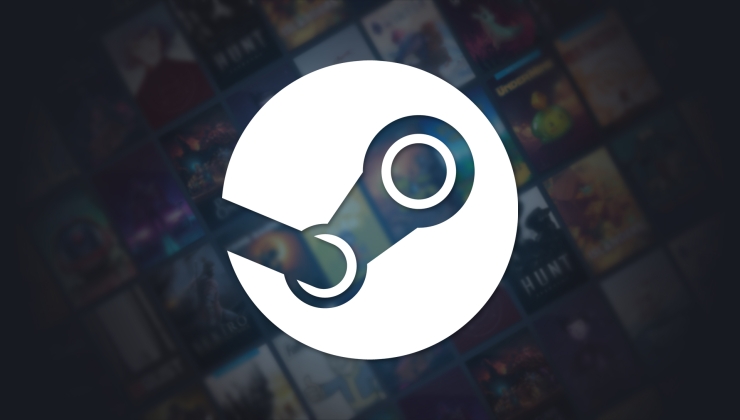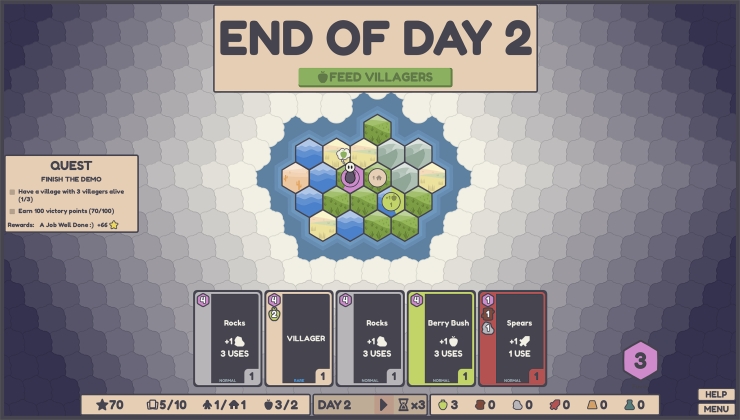European Consumer Organization (BEUC) has called on the European Commission to deal with various game publishers, that the BEUC claim are breaching EU consumer protection laws.
The action named "Game OVER", was announced September 12th, in partnership with member organisations from 17 countries. Taking aim at Activision Blizzard, Electronic Arts, Epic Games, Mojang Studios, Roblox Corporation, Supercell and Ubisoft.
What's the issue then? They identified these areas of concern:
- Consumers cannot see the real cost of digital items, leading to overspending: the lack of price transparency of premium in-game currencies and the need to buy extra currency in bundles pushes consumers to spend more.
- Companies’ claims that gamers prefer in-game premium currencies are wrong.
- Consumers are often denied their rights when using premium in-game currencies, tied to unfair terms favouring game developers.
- Children are even more vulnerable to these manipulative tactics. Data shows that children in Europe are spending on average €39 per month on in-game purchases. While they are among the ones playing the most, they have limited financial literacy and are easily swayed by virtual currencies.
From the press release: Agustín Reyna, Director General of BEUC, commented:
"The online world brings new challenges for consumer protection, and it shouldn’t be a place where companies bend the rules to increase profits. BEUC’s members have identified numerous cases where gamers are misled into spending money. Regulators must act, making it clear that even though the gaming world is virtual, it still needs to abide by real-world rules.”
“Gamers shouldn’t need to rely on a calculator anytime they want to make an informed decision on how much they want to spend. The money they spend should be displayed in real money and deceptive practices must be stopped.”
“Today, premium in-game currencies are purposefully tricking consumers and take a big toll on children. Companies are well aware of children’s vulnerability and use tricks to lure younger consumers into spending more.”
Video Games Europe, a trade body that represents 19 European and international video game companies and 13 national trade associations put out their own press release statement on it that notes:
"The purchase of in-game currencies is a well-established practice, and well understood by players. Our members always respect European consumer laws in how they offer these purchases.
Our industry offers a wide range of games that enable players to access a huge variety of genres and innovative new experiences across different services. Players can experience entire games without spending any money, giving them the opportunity to try games without any upfront cost or commitment.
Video Games Europe and its members support and promote fair and transparent principles for purchases of in-game content, including for in-game currency. The PEGI Code of Conduct requires developers to ensure that the real-world cost is clear and unambiguous at the point of purchase of the in-game currency."
This is going to be an interesting fight.
Over to your in the comments, what are your thoughts?
That's because, back in your day, you'd have some money that you'd be given or save up, and you'd spend a fixed amount of that in exchange for specific goods at the toy shop or sweet shop or wherever. You wouldn't have had invisible obfuscated access to your parents' credit cards for ephemera.Indeed - hell, credit cards were barely even a widespread thing, at the time.
Still, I assumed that the numbers were due to kids spending their own money (and if it is, that average is still a lot higher than I got back in my day
Indeed - hell, credit cards were barely even a widespread thing, at the time.
Still, I assumed that the numbers were due to kids spending their own money (and if it is, that average is still a lot higher than I got back in my day), and hadn't even considered the issue of them using credit cards without permission!
It's not exactly "without permission." The kid's account (or the parent's account if it's a shared device) gets access to the payment method for getting the game in the first place (or other applications if it's a F2P). The parent doesn't notice, and the kid has no idea - they just press the "get more jellybeans" button. Maybe the parent will notice come the end of the month, followed by a firm talking to, but perhaps not.
Game publishers have exploited this inexperience ruthlessly. Platform holders try to intervene and regulators try to curb the excesses, but there are fresh victims every day and there's money to be made.
I simply will not allow such adversarial design elements in my gaming time.
Last edited by emphy on 14 Sep 2024 at 4:02 am UTC
With an ingame currency, it’s easier to manipulate the consumer and easier to spend more, imagen if your a kid also. You can argue it’s the parents responsibility, and in a way yes.
But we have laws to protect consumers from a lot that could be seen as it’s the consumers responsibility, manipulation is hard to protect yourself from and if it’s done correctly it’s very hard to realise your the victim and how do you protect your kids from that ?
it’s a very predatory way to make you consume more and should not be allowed, even in casinos and similar places. Remove that asap!
Last edited by Zelox on 14 Sep 2024 at 6:33 am UTC
"Shouldn't need a calculator" as if the conversion ratio wasn't absolutely trivial.
And from that point alone, they stretch it out into buzz-words about "Companies manipulating children to spend money", as if having a (trivial) conversion step was the root of the issue.
A new user, voicing support for the companies' point of view? Did you register only to do that?
Last edited by damarrin on 16 Sep 2024 at 6:22 am UTC
"Shouldn't need a calculator" as if the conversion ratio wasn't absolutely trivial.
If it wouldn't be working, they wouldn't do it.
Video Games Europe: "the real-world cost is clear and unambiguous at the point of purchase of the in-game currency." Yes, and then everything else gets obfuscated behind said in-game currency. What a clown excuse!
Nobody said customers don't actually know how much they pay for their in-game stupid stargemcoins, that btw don't ever get sold in packages that match the in-game items they are actually trying to get, so that they always have useless leftovers unless they buy even more. It's the items that are unclearly priced, and conveniently ignored in their statement.
The companies obfuscate their success behind these mircopayments.
They need to roll out quality so they don't whale their few customers and call it 'success'.
So, this additional step of indirection, of abstraction lessens the blow. I don't get paid in coins/gems/…, I don't use them in my day-to-day life, so I don't "feel" what they're worth.
Taking aim at Epic Games
Good! And please free Alan Wake II from your shackles EpiG so it can be available on Steam, then i'll buy from there. Won't give you epic pigs money ever.
Taking aim at Epic Games
Good! And please free Alan Wake II from your shackles EpiG so it can be available on Steam, then i'll buy from there. Won't give you epic pigs money ever.
Epic published it, so you'll be giving them money regardless.
Taking aim at Epic Games
Good! And please free Alan Wake II from your shackles EpiG so it can be available on Steam, then i'll buy from there. Won't give you epic pigs money ever.
Epic published it, so you'll be giving them money regardless.
So the contract for that is eternal, Epic getting cuts on all future purchases even, say, 5 years from now? Even further? Is that what you are saying?
If what you state is true, NO i won't be giving Epig monys. I mean, one can get this game for free as in beer anyways right now. Then supporting Remedy by buying Alan Wake III from Steam two or three times, just to get the message through, right.
Whatever the case; Epig is not going to last with this business model (and attitude) of theirs much longer. The truth is that AW2 would already have sold triple times more if no Epig exclusive. Steam has quite a volume and great sales.
Whatever the case; Epig is not going to last with this business model (and attitude) of theirs much longer.
As long as they have the cash cow that is Fortnite they will be around forever. They can burn through billions in other parts of their business. You don't follow the gaming market, do you?
Also this statement:
"The purchase of in-game currencies is a well-established practice"
It's definitely well established, but so is the practice of loan shark-ing.
", and well understood by players."
Obviously not, else you wouldn't even get this action at this scale.
It's also well established that these are classical diversion tactics.
Dodgy…
Epic published the game. All the money goes through them.
Whatever the case; Epig is not going to last with this business model (and attitude) of theirs much longer.
As long as they have the cash cow that is Fortnite they will be around forever. They can burn through billions in other parts of their business. You don't follow the gaming market, do you?
Look, it is you who got it wrong: it wont be on Steam for a quite a while, that's how contract with Remedy is. Like with Microsoft with Alan Wake it was around 7 years. After that all changed. Being an original publisher isn't anything permanent.
Alan Wake 2 deal with Epic could be around the same time, maybe longer, but not anything forever permanent.
Fortnite is nothing sort of forever either
Frankly, whatever. Putting the game on Steam has nothing to do with Epic being or not being its publisher, they can publish it to Steam, too. The date the publishing contract expires doesn't have to be tied to Epic's exclusivity deal. The other dude said Epic wouldn't last long, which is clearly bollocks, as they have all the money in the world right now. Of course nothing is forever, it's hyperbole.
They don't have "all the money in the world" and nevertheless that isn't guarantee for anything in the long run. I'm sure you have noticed how fast "empires" can come down nowadays in entertainment (Star Wars is in nothing short of trouble in TV-series and games alike canceled seasons and new game don't sell). Fortnite is pretty much Epig got and its getting old.
This "nothing is forever here" stuff you bring about was indeed just few years for Alan Wake I and Microsoft. We'll see what happens with AW2
[...] I'm sure you have noticed how fast "empires" can come down nowadays in entertainment (Star Wars is in nothing short of trouble in TV-series and games alike canceled seasons and new game don't sell). [...]Well, in the case of Star Wars it helped that the powers that be seem hellbent on trying to destroy what came before. The whole "the extended universe isn't canon and we are changing established stories" was not a good move IMHO.













 How to set, change and reset your SteamOS / Steam Deck desktop sudo password
How to set, change and reset your SteamOS / Steam Deck desktop sudo password How to set up Decky Loader on Steam Deck / SteamOS for easy plugins
How to set up Decky Loader on Steam Deck / SteamOS for easy plugins
See more from me